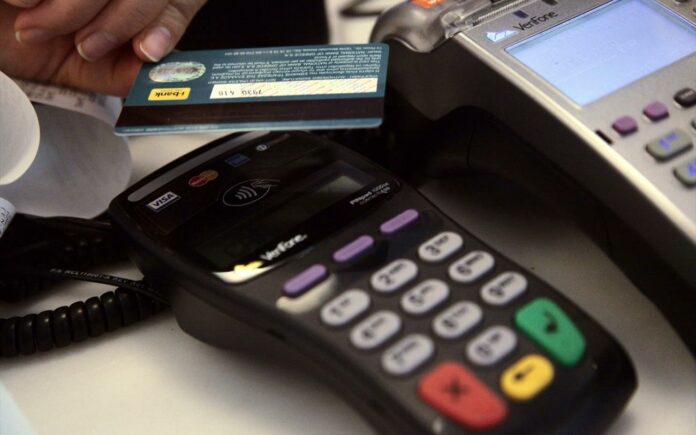The skyrocketing use of debit and credit cards in Greece – especially in the wake of imposed capital controls in June 2015 – has dramatically improved tax collection, increasing annual VAT remittances, for instance, by 50 percent in 2017.
According to a study by the Athens-based Foundation for Economic & Industrial Research (IOBE), if the use of “plastic” doubled in the country – reaching average European levels, in the process – VAT remittances would correspondingly rise by 3.3 billion euros a year.
IOBE’s study also notes that more targeted measures are needed in order to further boost the use of debit cards for payments – instead of cash – essentially the “fuel” for the country’s “grey” or “off-the-books” economy.
While the use of debit and other banks cards has mushroomed since 2015, Greece still remains in the bottom quarter of EU countries (seventh from last) in terms of the value of electronic transactions as a percentage of private sector consumption, namely, 20.1 percent in Greece for 2017, as opposed to the EU average of 34.6 percent in 2016.














